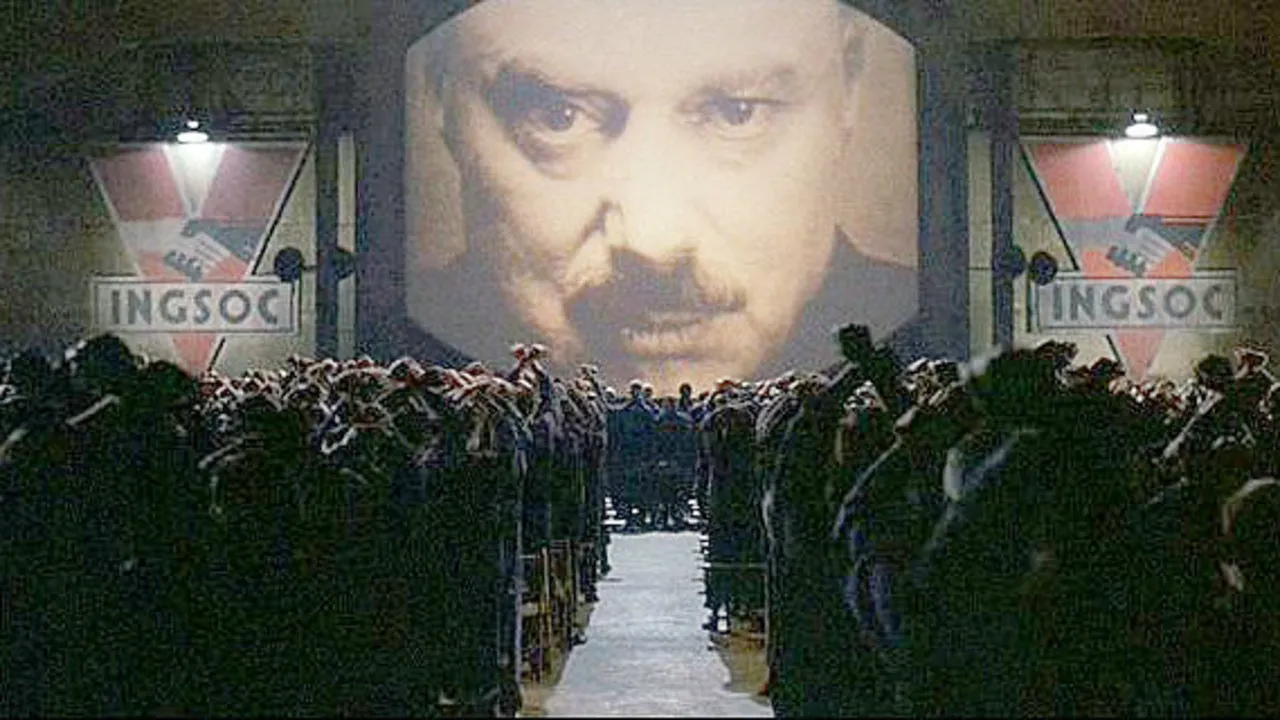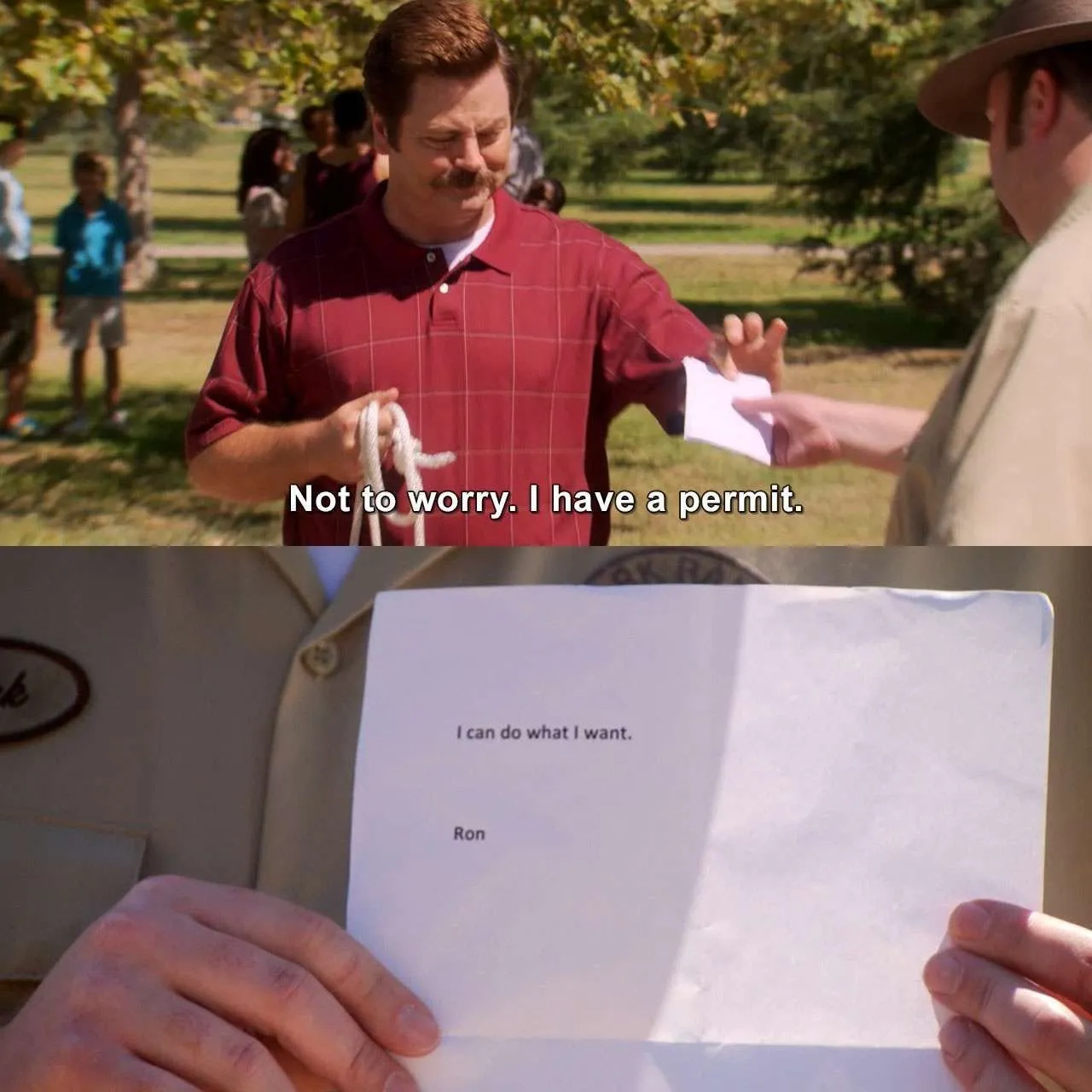I blame my dad.

I was eleven years old. I had just read Lois Lowry’s The Giver (an excellent science fiction dystopia for children, in case you haven’t read it), and was full of questions for my dad. Had anything like this ever happened in the real world? Could it? How could people allow it to happen in the first place? Why didn’t they fight, or leave, or just stand up and refuse to go along?
My dad said, “Oh, you like that kind of book, do you?” And he handed me an old, beat-up copy of Orwell’s 1984.
From that day on, I was hooked. I devoured the novel and went on to read Brave New World, Farenheit 451, and a number of other classic dystopias over the next year. In high school, I re-read them.
From the cozy little reading nook I had created among the old shoes and forgotten toys in my bedroom closet, I experienced true, nail-biting, cold sweat-inducing terror. No vampires or zombies, nothing in the horror genre could compare, for me, to the fictional fright of dystopia: complete dominion, total control. A nightmare spell cast over all of humanity from which no one can ever wake.
Immersion in this type of story at a young age does something to a person’s worldview. My trust for authority plummeted, my sensitivity to deception heightened, and I found it impossible not to notice the dystopian realities and themes and propaganda playing out in real-world history, politics, media, and culture.
These books sparked a fire of dissidence in me and armored me with the courage to resist authoritarian bullshit. To this day, I can’t bring myself to do anything just because the people in charge say I must. Who put them in charge? What contract did I sign, stating that I would do as they say? Do people trust them because they’ve proven themselves trustworthy, or just because they have the shiniest badge or the biggest microphone?

Some might say (and even have said) that I’m deluded, paranoid, or just antisocial. But I don’t think so. I think these qualities I have cultivated over the years—of skepticism, independence, and defiance—are essential faculties, equipping my human mind with a built-in defense against tyranny. And that if enough of us cultivate them, dystopia will stand no chance against us. It will have to stay in fiction, where it belongs.
Because here’s a little secret that the classic science fiction dystopias might not have made clear: no tyrant, no totalitarian state, no repressive regime—no matter how evil, how strong, or how depraved—can ever retain power over a mentally free people. It’s just not possible.
I suppose that’s why I’m embarking on this writing journey. I have a story to tell about the brave brilliance of human defiance. It’s a story of how dystopias begin, and how they can perhaps be ended—one mind at a time.
Perhaps some introductions are in order.

Hi, I’m Starr. I’ll be your contact for this deep dive into dystopia—both the fictional dystopia that I’ll be spinning into a novel, and the real-life dystopias that have occurred and are occurring in the world.
I’m a life-long reader and writer of science fiction. I live with my husband and daughter in an Appalachian holler and when I’m not writing, I like to pretend I’m a farmer. (Need any zucchinis?)
But enough about me. Let me introduce you to Technate 2051, the novel.
Here's the back-cover synopsis:
When a totalitarian regime strangles the entire globe, what does it take to be free?
The year is 2051. Ever since the pandemics, famines, and civil wars of the 2020s, Zappa Dobroshtan has lived as a feral human, constantly on the run from the Technate: the repressive regime behind the glossy technocratic world order.
But when he and his beloved granddaughter, Shen, are captured and separated, Zappa is forced to assimilate into Technate society. Zappa will do anything to find Shen and return to the wilderness, where they can live out their lives in…well, if not freedom, then at least a more voluntary state of endangerment. But in a world dominated by surveillance technology and controlled down to the nanoscopic level, that will be a formidable undertaking.
Technate 2051 will enthrall and terrify readers who crave an updated perspective on the classic science fiction dystopia, but it may come too late to serve as a warning for the future. It is an elegy for freedom, with perhaps just a flicker of hope shining through.
I think that if this story is to have any impact at all, it needs to be told now.
So, instead of going the normal route of writing the whole book, putting it through a few revisions, finding an agent who will find a publisher and waiting months for the publisher to slate it for publication, I’m serializing the whole thing on Substack, publishing the chapters as they are written. I'll also be publishing them here on Hive, until the last few chapters, which will be for Substack subscribers only. I'm already at Chapter Five over there, so I'll go ahead and post one chapter a day here on Hive (starting tomorrow) until we're caught up.
In addition, I publish weekly updates on my progress with the novel, as well as occasional essays about the relationship between humanity and real-world dystopias. I'll also be re-posting some of those essays to Hive.
If this sounds like your kind of newsletter, I invite you to subscribe over at Substack
